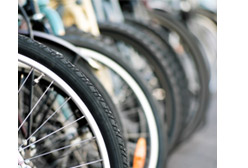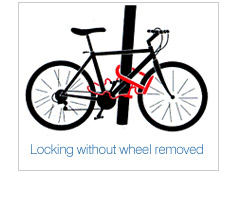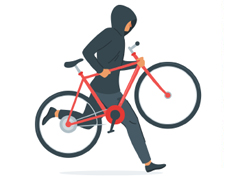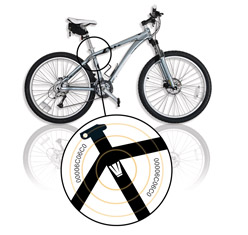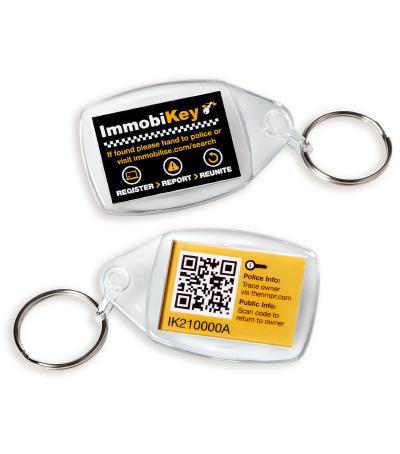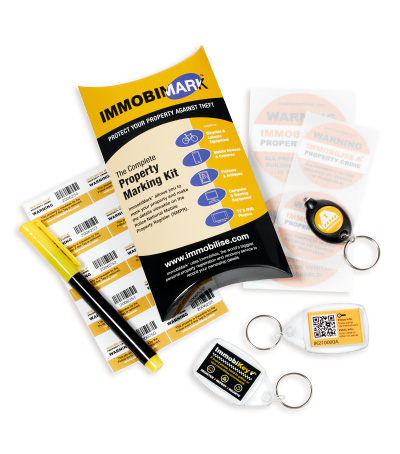Useful tips to keep your bicycle safe and secure
In the UK, a bicycle is stolen on average every minute; with less than 5% of those returned as they're difficult for the Police to identify the owner. Current research suggests that cyclists are more likely to have their bicycles stolen than motorcyclists their motorcycle or car owners their cars! - Bicycle theft has doubled in the UK since the mid 1990s, probably due to the increasing popularity of expensive models and innovative ways of selling stolen goods online.
Where to Park?
Always lock your bicycle wherever you leave it – It only takes seconds to steal an unsecured bike. Make sure it's locked in a well-lit public area with lots of people passing. Stations and public buildings often have designated areas with bicycle racks - Be sure to plan ahead and check out amenities in the places you need to leave your bicycle - Remember to read signs in the area you intend to park being sure not to park illegally.
Using a Bicycle Lock
Always use a good-quality D-lock. Cheaper locks at the lower end of the market can often be sawn through or bolt-cropped in seconds. It's well worth investing in the best-quality lock you can afford - ideally one costing at least £30-£40. Always lock your bicycle to a solid object that it can't be lifted over, broken, cut, or removed - such as metal railings, ground-anchored stands, or securely fixed grilles. Avoid using trees, gates, or chain-link fencing unless you're certain they're secure and tamper-proof. For maximum protection, use two different types of lock - a D-lock combined with a heavy-duty chain and padlock is ideal. Use the locks to secure both the frame and wheels, and try to fill as much of the D-lock's internal space as possible with parts of the bike to prevent leverage attacks. (See the diagram to the left.)
At Home
As many as half of all bicycles are stolen from the owner's home - Always lock your bike at home even when it is in your garage, flat or halls of residence. Please be vigilant when returning from a ride! Consider investing in a ground anchor and attach it securely to a wall or concrete floor. Make sure you keep your bicycle out of view of prying eyes as this alone will provide an irresistible incentive to break in to your property.
Bicycle Insurance
If you own a decent bicycle then it is probably a good idea to insure it. There are several ways you can do this; Insure your bicycle on your home contents insurance – don't forget to cover it for thefts away from home. More expensive bicycles may require specific insurance cover against theft and accidental damage.
Registration & Police Identification
When registering your bicycle on Immobilise, add photographs and record key details such as the make, model, and frame number. Include any identifiable marks you can find, including third-party codes - the system accepts them all. This information, stored on your Immobilise account, could be crucial in helping to recover your bicycle if it's ever lost or stolen.
Share this page
Share this page with your family, friends and colleagues.
